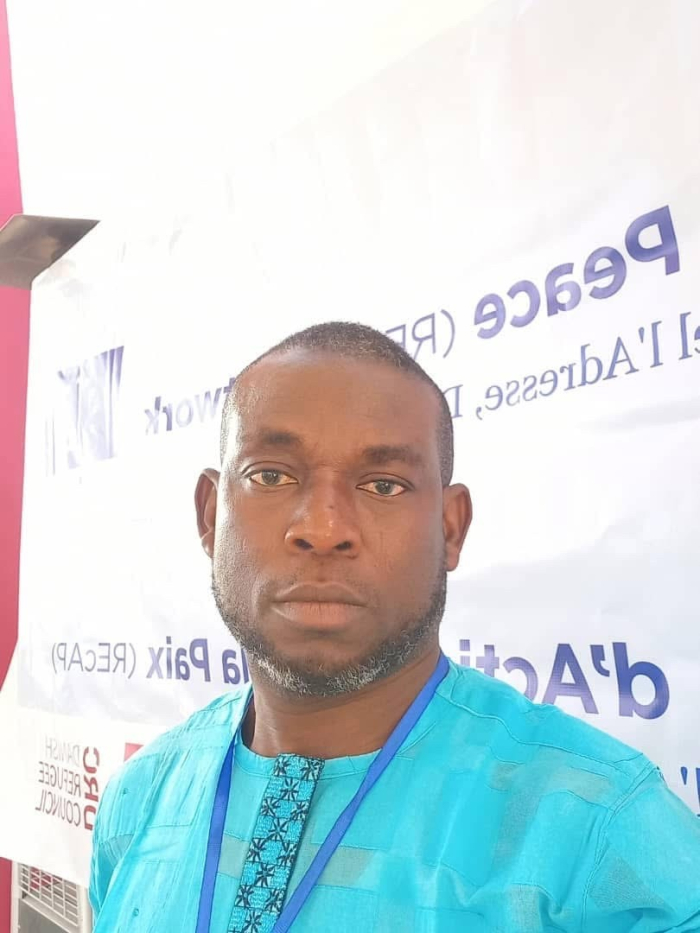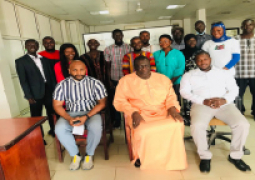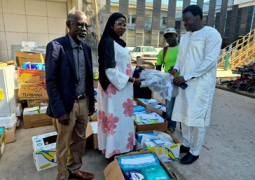
Established by an Act of the National Assembly in December 2017, the Truth, Reconciliation and Reparations Commission is mandated to investigate human rights violations committed between July 1994 and January 2017. The Commission was tasked with establishing an impartial historical record of abuses, recommending reparations for victims, promoting national reconciliation, and ensuring non-recurrence.
On 25th May 2022, the government, through the Ministry of Justice, released its White Paper responding to the TRRC’s final report, outlining which recommendations it accepted or rejected.
Likewise, Monday’s session, which brought together UTG students was basically to critically examine the government’s implementation plan and reflect on key themes emerging from the TRRC’s findings, including attacks on the media, the role of the military, and persecution of political opponents.
Dr. Luqman Saka, Professor of Political Science at UTG, underscored the importance of confronting the past to build a resilient future.
“As a nation, reflecting genuinely on our past will help us prepare for the future. We all know the tragedies that occurred. The only way to rebuild is to unite around a shared vision for justice and accountability.”
He added that difficult experiences often equip people with the resilience needed to face future challenges.
Madi Jobarteh, Executive Director of the Edward Francis Small Centre for Rights and Justice, expressed concern over the slow pace of implementation, attributing it to a lack of political will.
“The recommendations are there, but what is lacking is genuine political commitment.” he stated.
He added that for any meaningful implementation, victims must be included because they carry the pain. Justice must be served to them.
Jobarteh described the current implementation plan as progressive in theory but limited in tangible outcomes.
“When you compare the promises to the realities, it becomes clear that very little has been achieved.”
He thus urged students to familiarise themselves with the country’s history, understand the present, and actively work to prevent a recurrence of past injustices.
Lawyer Imran Darboe also emphasised the importance of genuine reform, recalling that since 2018, The Gambia has embarked on a journey of rebuilding, which includes the TRRC and Security Sector Reform.
“But reform must go beyond rhetoric. If we treat reform as just a slogan, we will never move forward.”





